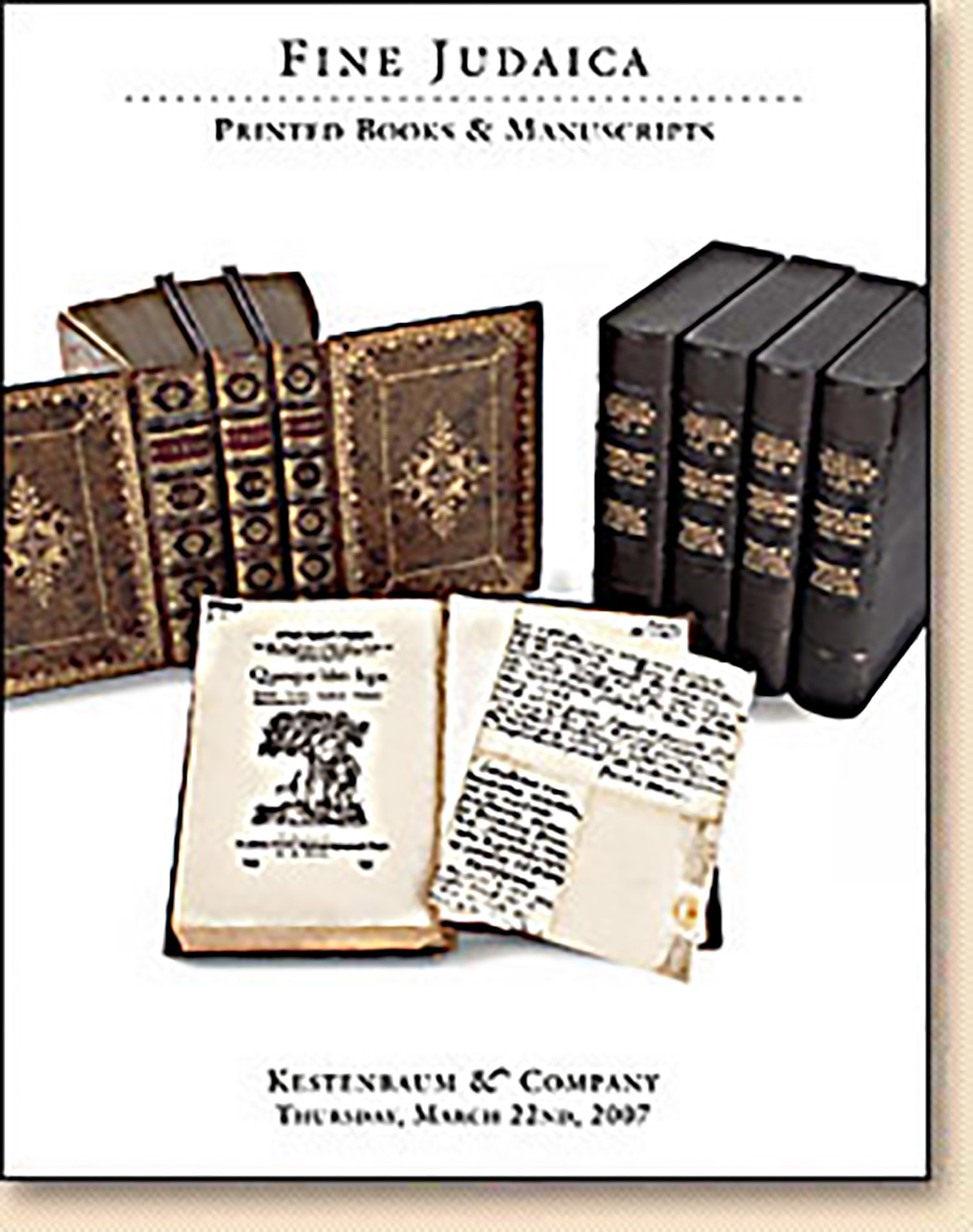Pirkei Avoth [Ethics of the Fathers]. With commentary by Moses Maimonides, including Shemonah Perakim

AUCTION 36 |
Thursday, March 22nd,
2007 at 1:00
Fine Judaica: Printed Books & Manuscripts
Lot 194
(TALMUD).
Pirkei Avoth [Ethics of the Fathers]. With commentary by Moses Maimonides, including Shemonah Perakim
Venice: Marco Antonio Giustiniani 1546
Est: $4,000 - $6,000
Giustiniani Mishnah Containing Yemenite Fragment of Early Work by Judah Alharizi
Our fragment commences with a rhyme found incidentally in Alharizi’s Tachkemoni, Gate Twenty: “…until he came to No-Amon…thence went on to Mount Hermon.” See Judah Alharizi, The Book of Tahkemoni, (D.S. Segal ed. 2001), p. 199.
This gives reason to believe that our manuscript may contain a passage from an earlier work by the same author, Mahberoth Ithi’el, of which only a single fragmentary manuscript survives. Pococke Ms. 50 at the Bodleian Library contains only a fraction of the 50 maqamat of Al-Hariri: II-XXVI complete, the beginning of Maqama I and a portion of Maqama XXVII.
Both the earlier Mahberoth Ithi’el and the later Tahkemoni were Hebrew reworkings by the Andalusian poet Judah Alharizi (1165-1225) of the Arabic maqamat [rhymed prose] of Al-Hariri of Basra (c.1054-1112). See Judah Alharizi, Machberoth Ithi’el, (T. Chenery ed. 1872); Al-Hariri, Mahberot Iti’el be-tirgum Rabbi Yehudah Alharizi, (Y. Perets ed 1951). - The problem with this identification is that each Machbereth in the Machberoth Ithi’el commences with the formula “Ne’um HaGever Ithi’el" while our Machbereth commences “Amar Mordechai HaTzidoni."
I WAS SUBSEQUENTLY ABLE TO IDENTIFY THIS MAQAMA AS A FRAGMENT FROM SEPHER HA-MUSAR BY THE YEMENITE ZACHARIA AL-DAHRI (EDITED BY YEHUDA RATZABY, JERUSALEM, BEN-ZVI INSTITUTE, 1965). THE HERO OF THE BOOK IS MORDECAI THE SIDONITE. SEE REUBEN AHRONI, "JEWISH-MUSLIM RELIGIOUS POLEMICS IN YEMEN," HUCA, VOL. LII (1981), PP. 323-4
